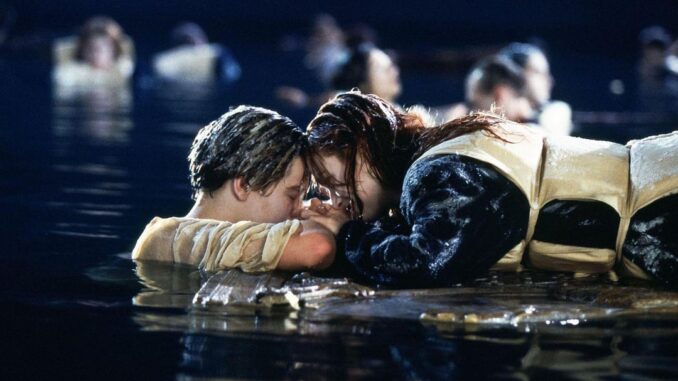
The Unsinkable Authenticity: Why Jack and Rose Feel More Real Than Many People Realize
To many, Jack and Rose are the quintessential cinematic fantasy: a whirlwind, star-crossed romance painted against the opulent, doomed backdrop of the Titanic. Their story, replete with grand gestures, illicit passion, and a tragic end, is often dismissed as a Hollywood fairytale, too perfect, too picturesque to resonate beyond a sentimental tear. Yet, beneath the epic spectacle and the undeniable romance, Jack Dawson and Rose DeWitt Bukater possess a raw, visceral authenticity that imbues them with a surprising, enduring "realness" that often goes unacknowledged. They feel real not because they perfectly replicate ordinary life, but because they embody profoundly human desires, fears, and transformative moments that transcend their extraordinary circumstances.
One of the most compelling aspects of their authenticity lies in their individual struggles, which precede and ultimately fuel their connection. Rose, trapped in a gilded cage of Edwardian high society, embodies the universal yearning for freedom and self-discovery. Her life is meticulously choreographed, from the corsets that constrict her body to the societal expectations that shackle her spirit. She is suffocating, a vibrant bird longing to escape its gilded cage. Jack, on the other hand, represents unburdened spontaneity and a life lived on the fringes. He is an artist, a dreamer, unbound by class or convention, and therefore, utterly dangerous and alluring to Rose. Their initial attraction isn't just physical; it's a mutual recognition of what the other possesses or lacks. Rose sees in Jack the freedom she craves, while Jack sees in Rose a beauty and spirit stifled by convention. This dynamic, of two souls from different worlds finding common ground in a shared human yearning for more, is profoundly relatable to anyone who has ever felt trapped or yearned for an escape.
Furthermore, their journey from strangers to soulmates is peppered with small, profoundly human moments that ground their larger-than-life romance. It’s not just the iconic "I'm flying" scene, but the awkward intimacy of Jack drawing Rose, where her vulnerability is laid bare not just physically, but emotionally. It’s the shared laughter as he teaches her to spit like a man, a rebellious act that shatters her prim facade. It's the electric energy of their dance in steerage, a defiant rejection of class barriers, where their bodies move with an uninhibited joy Rose has never known. These aren't grand, sweeping declarations; they are the subtle gestures, the shared glances, the quiet moments of connection that forge genuine bonds in real life. Their imperfections, too, contribute to their realism: Jack's charming roguishness, Rose's initial timidity and lingering adherence to propriety, even their clumsy attempts to navigate their forbidden attraction, make them feel less like idealized archetypes and more like complex individuals navigating a bewildering, intoxicating new emotion.
Perhaps the most potent element of their realness, ironically, is the historical crucible in which their story unfolds. The Titanic itself, a symbol of human hubris and the stark realities of class division, injects their romance with a desperate, poignant urgency. Their love isn't just challenged by societal norms; it's tested by an apocalyptic event. The chaos, the terror, the stark choices between life and death—these are not elements of a whimsical fantasy. They force Jack and Rose to confront their deepest fears and discover the depths of their courage and devotion. Jack's ultimate sacrifice, holding onto Rose as he freezes in the icy water, is not a dramatic flourish but a devastatingly real act of love and selflessness. His final words, "Never let go," are less about a promise of eternal love and more about the fundamental human imperative to survive and to carry the memory of those we lose.
Ultimately, Jack and Rose resonate with a surprising authenticity because their story taps into universal human experiences: the desire for liberation, the thrill of forbidden love, the courage to defy convention, the pain of loss, and the enduring power of memory. Rose carries Jack's spirit with her for the rest of her long life, a testament not to a fleeting infatuation, but to a transformative connection that irrevocably altered her trajectory. They are not merely characters in a film; they are vessels for our own unexpressed longings, our own rebellions, and our own experiences of profound, life-altering love and loss. Their "realness" lies not in their historical possibility, but in their capacity to hold a mirror to the most potent, heartbreaking, and ultimately, unsinkable aspects of the human heart.